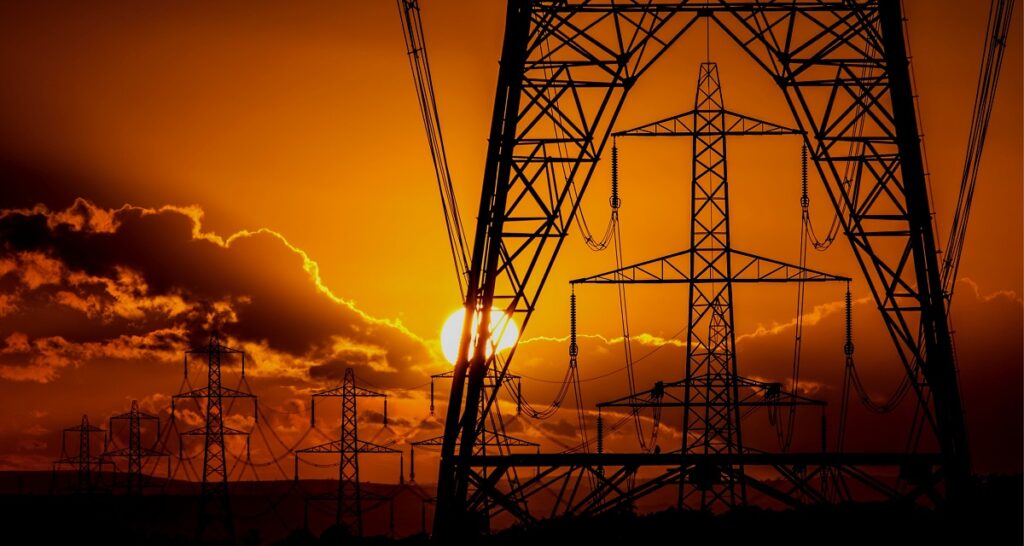The UK’s power sector has said a number of important questions remain after National Grid ESO published its interim report into this month’s black out, with Ofgem having now launched an official investigation.
Earlier today the electricity system operator published its interim report into the incident on 9 August, revealing its initial conclusion to be that a lightning strike was the root cause of trips at two large generators which triggered the loss of frequency.
Today’s report was always intended to be preliminary – more detailed findings will be included within the final report, slated for publication on 6 September – however the industry’s early response has been to argue that it creates more questions than it answers.
Richard Black, director at the Energy and Climate Intelligence Unit (ECIU) said that the report raises “several important questions”, chief among them being how a lightning strike caused two generators to take themselves offline given, as the report states, that strike was dealt with in a routine fashion.
Industry regulator Ofgem meanwhile has responded to National Grid ESO’s preliminary report by launching an investigation of its own, aiming to establish what lessons can be learned from the event and, crucially, whether any of the parties involved – both of National Grid’s regulated entities, the country’s distribution network operators and RWE/Orsted as the generators in question – breached their licence conditions.
Jonathan Brearley, executive director of systems and networks at Ofgem, said that it believed there remain “areas where we need to use our statutory powers to investigate”.
“This will ensure the industry learns the relevant lessons and to clearly establish whether any firm breached their obligations to deliver secure power supplies to consumers,” he said.
Ofgem was quick to stress that the opening of its investigation does not imply the regulator has made any findings over non-compliance, but also said that enforcement action could follow should its investigation warrant it.
Enforcement action could take the form of a hefty fine – National Grid could receive a financial penalty of up to 10% of its annual turnover should it be found that it had breached its licence conditions.
While the report has been questioned in some quarters, that it has all but cleared renewables as having contributed to the power cut has been welcomed by the clean power sector.
“[The report] makes clear however that the power cut cannot be blamed on the increase in renewables, as some people have claimed; multiple factors were involved, so highlighting just one is misleading,” Black said.
Those sentiments were echoed by Emma Pinchbeck, deputy chief executive at RenewableUK, who said: “We welcome the clarity provided by National Grid’s report to Ofgem that the cause of the power cut was a lightning strike which affected two power stations. National Grid has stated that the outage had nothing to do with the variability of renewables. To ensure our power system is as robust as possible going forward, we need to upgrade our old infrastructure so that we have a grid fully fit for the energy transition and which makes the most of cheap flexible, renewable technologies.”
Merlin Hyman, chief executive at industry trade body Regen, said that both National Grid’s preliminary report and the government’s own investigation failed to ask the “basic question” of whether or not the country’s electricity system is being operated at “too fine a margin”.
“Whilst a higher margin to cope with unexpected events comes at a cost to bill payers, the price the system operator has to pay for that backup frequency response has been falling rapidly,” Hyman said.
Another finding from the report was that in addition to the loss of two sizeable generators, approximately 500MW of embedded generation came off stream as the system’s Loss of Mains protections kicked in.
Cornwall Insight’s senior modeller Tom Edwards said that the incident highlighted how “increasingly interdependent and interconnected our systems have become”, and that it was “essential” that the effects of embedded generation on the whole system were taken into account when planning operational security.
“The investigations will need to evaluate the way the National Grid assesses response and reserve given the changing mix of generation on the system and how services are provided and contracted for, including the liabilities on providers unable to fulfil their obligations.
“There is a balance here between the likelihood and scale of potential distribution and the amount consumers might be prepared to pay to avoid this in our increased digitalised aged,” Edwards added.
And as Ofgem starts its own inquiry into the incident, Black says that the regulator could – or perhaps should – find itself the subject of an investigation.
“What is less clear is who will inquire into Ofgem itself; as the regulator, it has a duty to ensure not only that the current system is robust, but also that companies are investing in clean technologies such as battery storage quickly enough to decarbonise in line with government policy and keep the lights on while doing so,” he added.






